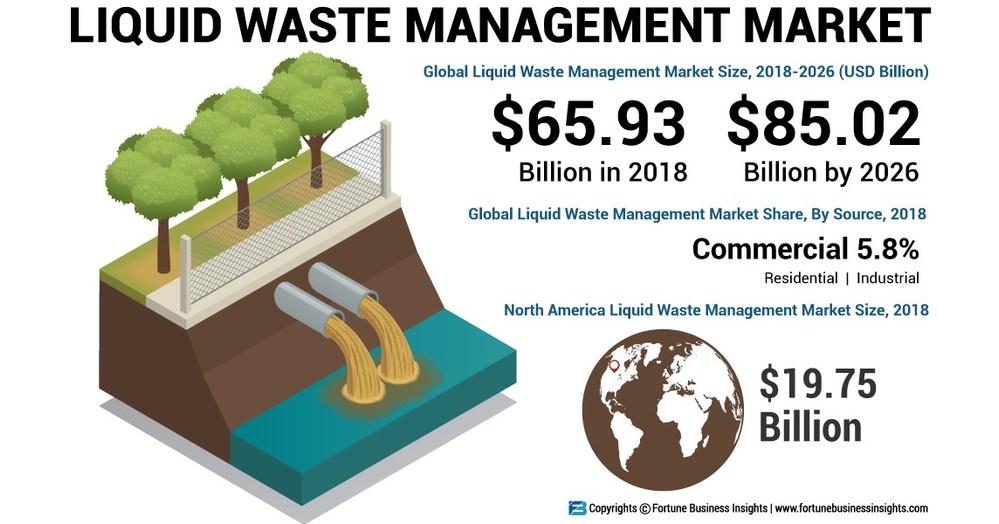The Only Guide for Reclaim Waste
The Only Guide for Reclaim Waste
Blog Article
The Ultimate Guide To Reclaim Waste
Table of ContentsReclaim Waste Fundamentals ExplainedThe Main Principles Of Reclaim Waste Examine This Report about Reclaim WasteLittle Known Questions About Reclaim Waste.Rumored Buzz on Reclaim Waste
Check out the kinds, incidents, and kinds of fluid waste. Domestic sewer waste refers to the waste and products from a domestic septic system. This type of waste is produced by human beings in homes, colleges, and other structures. This only consists of septic systems that have a drainpipe field. The proper monitoring and disposal of residential sewage waste require fluid waste to be moved to a sewer treatment plant where the correct methods and equipment are used to detoxify and get rid of waste.
Business waste typically consists of potential threats, such as flammable materials or a mixture of fluid and strong waste products, and calls for an extra advanced and thorough disposal procedure. The disposal of commercial waste usually involves the filtration of waste before transport to make sure risk-free and appropriate disposal. Industrial waste is created from results and overflow of industrial processes and production.
This kind of waste can not utilize the very same sewer management transportation or procedures as septic or business fluids. The hazardous waste management procedure calls for the evaluation and screening of liquid waste prior to it goes through the disposal procedure (liquid waste removal). Overflow waste is the fluid waste that originates from overflow and excess stormwater in highly booming areas or cities
Overflow waste can create contamination and flooding if not taken care of correctly. Discover much more concerning drain cleansing and waste monitoring. Making certain correct waste management can prevent catastrophes and lower ecological harm. Both people in domestic setups and professionals in business or production sectors can take advantage of comprehending the procedures and laws of fluid waste administration.
Reclaim Waste - Truths
Get in touch with PROS Services today to learn more about our waste administration and disposal solutions and the appropriate methods to care for the fluid waste you produce.
(https://reclaim-waste-f27e88.webflow.io/)This so-called 'wastewater' is not only an essential resource yet, after therapy, will be launched to our land, rivers or the sea. Used water from commodes, showers, bathrooms, kitchen sinks, laundries and commercial procedures is known as wastewater.

water utilized to cool equipment or clean plant and equipment). Stormwater, a kind of wastewater, is runoff that moves from agricultural and urban areas such as roofings, parks, yards, roads, courses and gutters into stormwater drains, after rainfall. Stormwater streams neglected directly to regional creeks or rivers, at some point getting to the ocean.
What Does Reclaim Waste Mean?
In Queensland, many wastewater is treated at sewer therapy plants. Wastewater is moved from domestic or industrial sites with a system of drains and pump stations, understood as sewerage reticulation, to a sewage treatment plant. City governments construct, keep and run most sewer treatment plants. Operators are licensed under the Environmental Protection Act 1994 to discharge cured wastewater at an appropriate ecological requirement into waterways.
The Division of Natural Resources encourages neighborhood governments regarding managing, operating and maintaining sewage systems and treatment plants. In unsewered areas, local federal governments might need householders to mount private or home sewage therapy systems to treat residential wastewater from bathrooms, kitchen areas, washrooms and laundries. The Department of Natural Resources authorises the use of household systems when they are shown to be effective.
The majority of stormwater obtains no treatment. In some brand-new class, treatment of some stormwater to eliminate litter, sand and crushed rock has started utilizing gross pollutant catches. Wastewater treatment takes place in four phases: Removes strong matter. Bigger solids, such as plastics and various other objects mistakenly discharged to drains, are removed when wastewater is travelled through screens.
Wastewater after that streams into huge tanks where solids clear up and are removed as sludge. Grease and residue are skimmed from the surface. Utilizes little living organisms understands as micro-organisms to damage down and get rid of remaining dissolved wastes and great fragments. Micro-organisms and wastes are incorporated in the sludge. Eliminates nitrogen and phosphorus nutrients that can cause algal flowers in our rivers and intimidate aquatic life.
The Definitive Guide to Reclaim Waste
Nutrient elimination is not readily available at all sewage treatment plants because it calls for expensive specialized equipment. Clear liquid effluent generated after treatment may still include disease-causing micro-organisms - liquid waste removal.

Many wastewater moves into the sewerage system. Under the Act, neighborhood federal governments provide authorizations and licences for environmentally pertinent activities (Ages) including wastewater launches that might have a local influence.
Excitement About Reclaim Waste
Otherwise, examples are considered research laboratory evaluation. Typically lots of tests are needed to develop click for more info the degrees of each of the various pollutants such as oils, heavy steels and chemicals in water. Tracking offers factual info about water high quality and can validate that permit conditions are being met. The info obtained through tracking supplies the basis for making water top quality choices.
Report this page